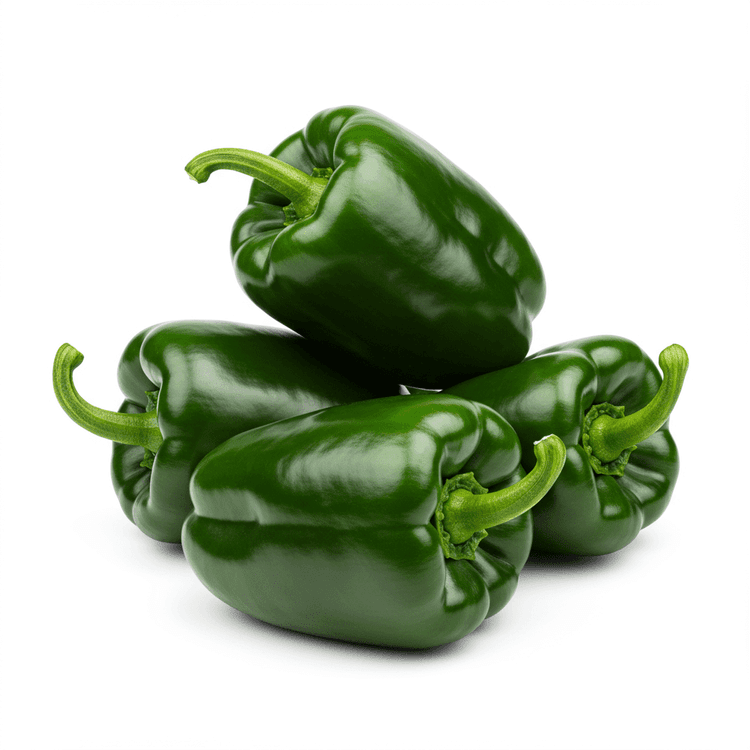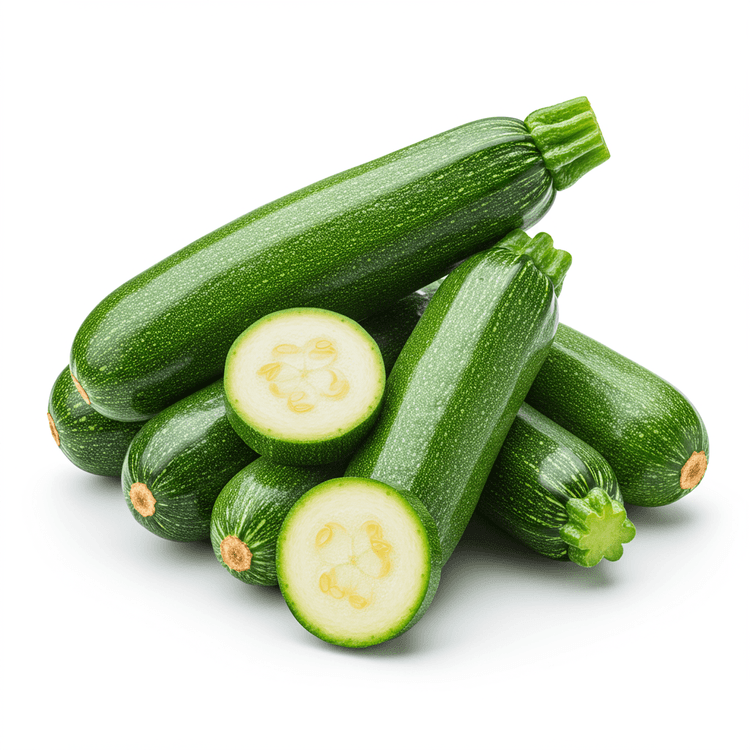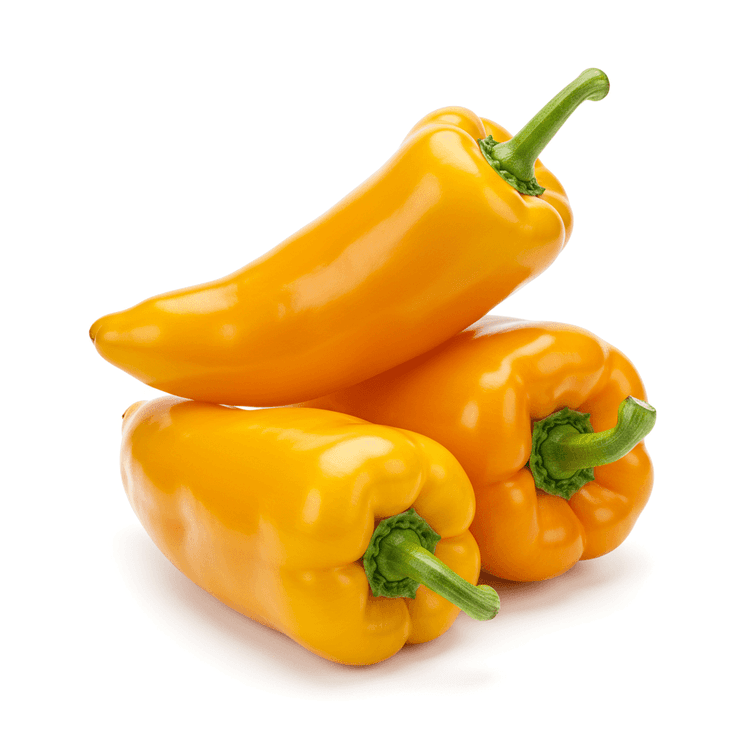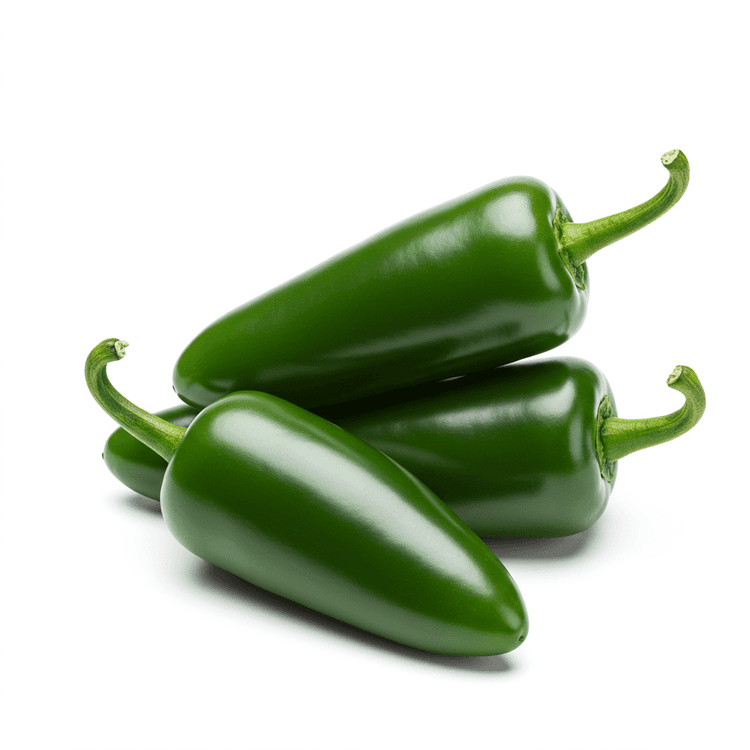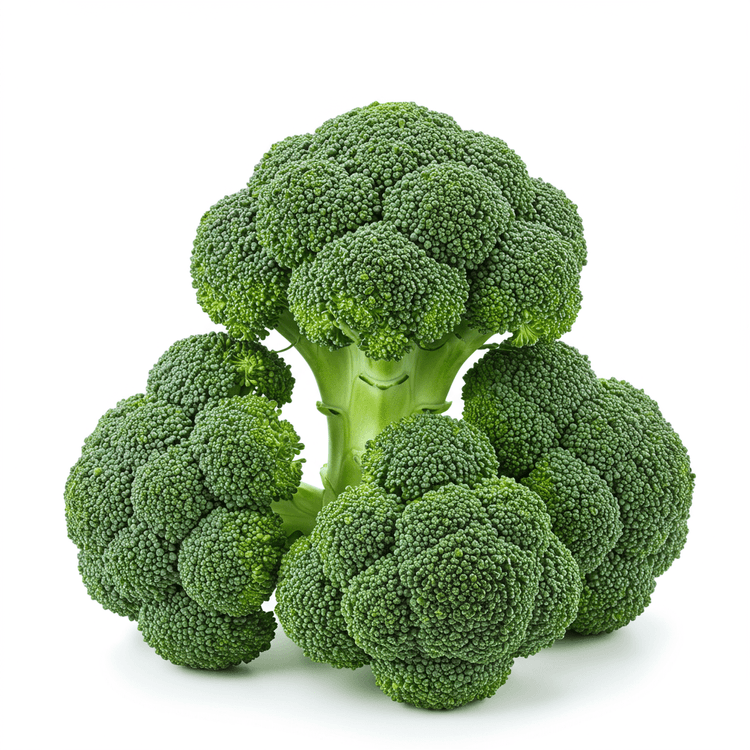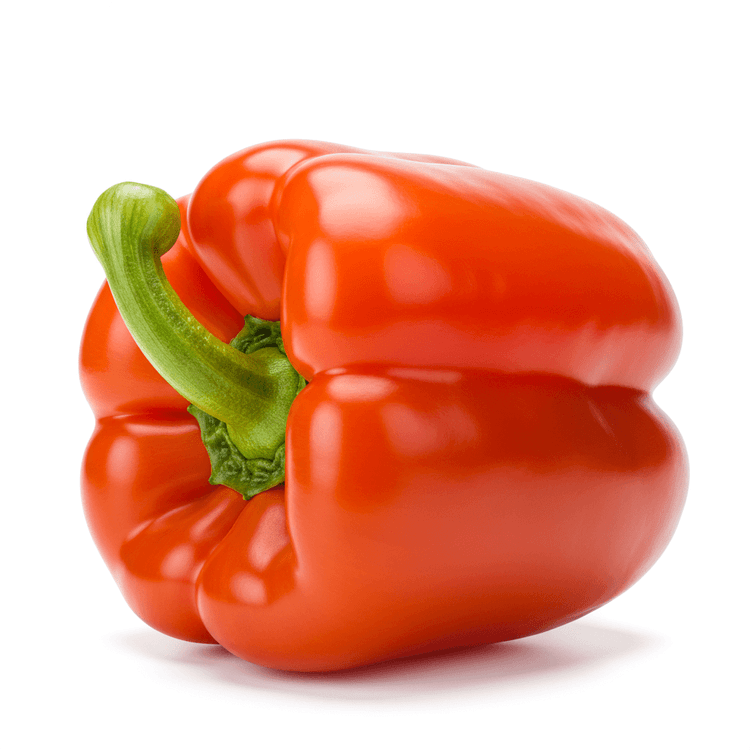
Bell Pepper
Bell peppers, also known as sweet peppers, are vibrant, crunchy vegetables that come in a variety of colors including green, red, yellow, and orange. They have a mild, sweet flavor with a crisp texture, making them a versatile ingredient in both raw and cooked dishes. Bell peppers are rich in vitamins A and C, and their glossy, smooth skin adds visual appeal to any recipe. Whether sliced, diced, or roasted, bell peppers are a staple in cuisines around the world, offering a burst of color and nutrition to meals.
Common Uses
- Add raw bell peppers to salads for a crunchy texture and a pop of color.
- Roast bell peppers to enhance their natural sweetness and use them in pasta dishes, sandwiches, or as a side dish.
- Stuff bell peppers with a mixture of rice, meat, and spices for a hearty, flavorful meal.
- Sauté bell peppers with onions and garlic as a base for stir-fries, fajitas, or omelets.
- Blend roasted bell peppers into soups, dips, or sauces for a smoky, rich flavor.
- Use diced bell peppers as a topping for pizzas, tacos, or baked casseroles to add freshness and color.
Nutrition (per serving)
Nutrition (per serving)
Calories
31.0kcal (1.55%)
Protein
1.0g (2%)
Carbs
6.0g (2.18%)
Sugars
4.2g (8.4%)
Healthy Fat
0.1g
Unhealthy Fat
0.0g
% Daily Value based on a 2000 calorie diet
Nutrition (per serving)
Calories
31.0kcal (1.55%)
Protein
1.0g (2%)
Carbs
6.0g (2.18%)
Sugars
4.2g (8.4%)
Healthy Fat
0.1g
Unhealthy Fat
0.0g
% Daily Value based on a 2000 calorie diet
Health Benefits
- Bell peppers are rich in vitamin C, which supports immune health and skin vitality.
- They contain antioxidants like beta-carotene, which promote overall wellness and eye health.
- Low in calories and high in fiber, bell peppers are ideal for weight management and digestive health.
- Their sweet and mild flavor makes them versatile for raw salads, stir-fries, and roasted dishes.
- Bell peppers are a great source of hydration due to their high water content.
- They add vibrant color and crunch to meals, enhancing both visual appeal and texture.
Chefadora AI is here.
Experience smarter, stress-free cooking.
Storage Tips
Store bell peppers in the refrigerator, ideally in the crisper drawer, to maintain their freshness and crunch. Keep them unwashed and in a breathable bag or container to prevent moisture buildup. If cut, store them in an airtight container with a paper towel to absorb excess moisture. Avoid freezing raw bell peppers, as it can alter their texture, but they can be frozen after blanching for longer storage.
Marnirni-apinthi Building, Lot Fourteen,
North Terrace, Adelaide, South Australia, 5000
Australia
